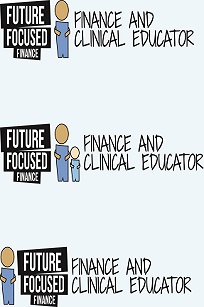Feature / Together stronger
A new Future-Focused Finance framework sets out required attributes for finance staff, to bring consistency to appraisals.

It is generally agreed that existing finance competency frameworks are good, but perhaps are only taken off the shelf just before annual appraisals. Even then, anecdotally, finance staff report that appraisals can differ from team to team, organisation to organisation. But NHS Future-Focused Finance (FFF) has released a framework to introduce greater consistency and clarity, highlighting the skills finance staff will need to support the service through the next stages of its five-year plan.
The Four strengths framework offers four attributes needed by finance staff – I’m a finance expert; I’m a team player; I drive value; and I make change happen.
David Ellcock, programme director for Future-Focused Finance, believes the statements can be used in formal appraisals or informally. ‘If you speak to most NHS finance professionals, a consistent approach to staff appraisals and development plans has been missing for some time. It makes sense for those working in clinical commissioning groups and in trusts to be reviewed in exactly the same way, under exactly the same headings. But at the moment, that’s not happening,’ he says.
‘The Four strengths will go a  long way to redressing the balance – providing a consistent, universal set of categories that can be used throughout the NHS. We hope that they are a useful tool for all finance teams across the country.’
long way to redressing the balance – providing a consistent, universal set of categories that can be used throughout the NHS. We hope that they are a useful tool for all finance teams across the country.’
The framework has been trialled in a number of trusts, including University Hospitals of Leicester NHS Trust. Alistair Fleming, the trust’s clinical management group head of finance, says the Four strengths system was a good match for the appraisal scheme at the trust. ‘We grade people against four quadrants – quality, performance and operations, people and finance. That fits well with what’s been developed by FFF – quality equates to driving value; performance and operations to making change happen; people to team player; finance to being a finance expert.
‘I find appraisals can be subjective but this is more detailed about what the core competencies are. It makes sense to use it.’

Mr Fleming, who has since moved to a new team, first used the Four strengths for his deputy’s appraisal.
It went well and has been used to appraise the rest of the team. He plans to introduce it for his new team. ‘The question on making change happen works pretty well in financial management,’ he says. ‘In the appraisal, we mapped this back to our performance and operations quadrant. There’s a useful element about influencing change as part of the daily job and implementing new ways of working.
‘In financial management we are sometimes seen as the numbers guys, but you pick up knowledge of what clinicians tell you works. It would be good to use that to provide that “friendly” challenge to clinicians and operational teams – could we do things differently, in a way that’s better for patients and helps the bottom line?
‘In difficult times people tend to retreat to what they know best – “We do the numbers and operations is your bag, guys” – but we want to be there providing expert advice and coming up with options from our experience of working in other clinical areas.’
Derek Stewart, associate director of finance – financial services at Northampton General Hospital NHS Trust, started using the tool last month for a team member’s appraisal and is speaking to senior managers in the finance department about spreading it more widely.
‘It’s good because it is clear  and fits with our approach. Change is continuous for us and we are always striving to improve. For example, in the financial accounts area, we undertake an annual lessons learnt review of processes to ensure we can make them better for the following year. At first I thought the driving value for patients and taxpayers would be difficult as we are not in a management accounts setting and dealing with direct patient care. However, we are involved in trying to get equipment replaced and working with directorates to put together replacement plans for capital medical equipment.
and fits with our approach. Change is continuous for us and we are always striving to improve. For example, in the financial accounts area, we undertake an annual lessons learnt review of processes to ensure we can make them better for the following year. At first I thought the driving value for patients and taxpayers would be difficult as we are not in a management accounts setting and dealing with direct patient care. However, we are involved in trying to get equipment replaced and working with directorates to put together replacement plans for capital medical equipment.
‘So, in that sense, driving better value in procurement and ensuring best treatment is available for patients by timely replacement of equipment, and also ensuring accurate site valuations are undertaken, means this strength is directly linked to the work we do.’
The team player strength is important to the Northampton General financial accounts team as staff work in a number of small groups, so communication and working together is paramount.
Mr Stewart adds that the finance expert statement aligns with the core competencies for each role. This helps spot training and development needs, not just for individuals but also potentially across a whole finance department. ‘Looking across the financial accounts team and the whole department we could see a weakness or learn why people like to work in a particular area. This can help get a consistent approach across the department.’
The tool could help retention of newly qualified finance staff, Mr Stewart suggests. By focusing on achieving the core competencies in the finance expert section, staff could develop within the Agenda for Change bands, making staying more attractive.
‘If they achieve these levels, there’s an opportunity for them to be paid at a higher grade and for the department to keep staff longer. If you keep staff happy, you keep them longer and the trust has a better return on investment in funding and time.’
He adds that the finance expert section can help identify staff members who would like to move to other areas within the department – helping to pick out the skills and support they will need. ‘You can build on their core competencies to prepare them for where they would like to go next, hopefully keeping them at the trust, which helps our succession planning.’
Appraisals – both formal and informal – can help finance teams to identify the skills that their staff need to help facilitate the emerging structure of the NHS and its financial mechanisms. The Four strengths could offer a clear and simple way for all NHS organisations to achieve this in a consistent way.
FACE time
 A key work stream of the FFF Close partneringdelivery group is to improve financial awareness and partnership working between NHS managers and clinicians by sharing knowledge through training and engagement. To this end, the finance and clinical educator (FACE) role has been developed, with the aim of establishing a FACE of finance in every NHS organisation. FACE recognises the role non-finance professionals can play in championing clinical-financial engagement.
A key work stream of the FFF Close partneringdelivery group is to improve financial awareness and partnership working between NHS managers and clinicians by sharing knowledge through training and engagement. To this end, the finance and clinical educator (FACE) role has been developed, with the aim of establishing a FACE of finance in every NHS organisation. FACE recognises the role non-finance professionals can play in championing clinical-financial engagement.
Pam Kaur, commercial finance manager at University Hospitals Coventry and Warwickshire NHS Trust, and Ben Roberts, head of finance transformation at Bolton NHS Foundation Trust, are leading the FACE network nationally. There are now 190 FACEs, including a number of clinicians. Ms Kaur says that though the educator role is not new, FACE gives them a national title that acknowledges and rewards their work.
At Coventry and Warwickshire, for example, training has concentrated on its 290 budget-holders, though the events have attracted other staff members with an interest in NHS finance. Training has covered skills such as reading budget reports, savings and service line reporting and patient-level costing.
The FACE network was launched at the annual HFMA conference in December 2014 and has gained momentum through workshops and events, as well as less traditional methods, such as Twitter chats.
‘We’ve spent a lot of time over the last six months looking at where we are as a network, developing a vision on where we want to be in the future,’ Ms Kaur says. ‘Over the next three years we want to build the foundations for a long-term, long-lasting relationship between finance and clinicians of all disciplines and to help people with support and resources.’
Mr Roberts adds: ‘The support and opportunities from being part of the network have been amazing. It hasn’t just helped me in my own development, but also in my day-to-day role. I was on a conference call with another trust talking about their services recently – if I hadn’t been part of the network that call wouldn’t have happened.’
Email: [email protected]
or tweet: @k_pam5
@ben_m_roberts_1
@nhsFFF_FACE
• FFF will lead a learning lab at the HFMA annual conference, 7 December
Related content
The Institute’s annual costing conference provides the NHS with the latest developments and guidance in NHS costing.
The value masterclass shares examples of organisations and systems that have pursued a value-driven approach and the results they have achieved.